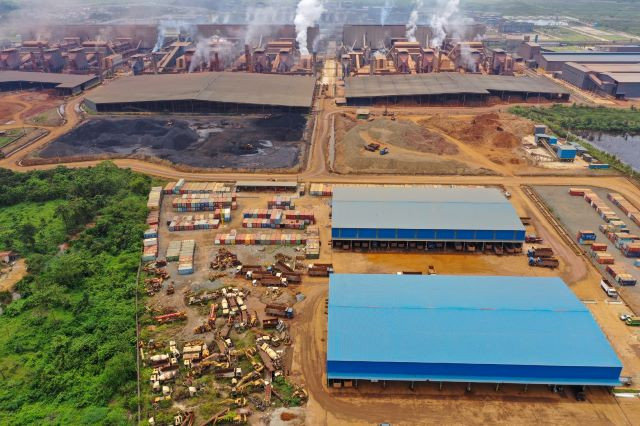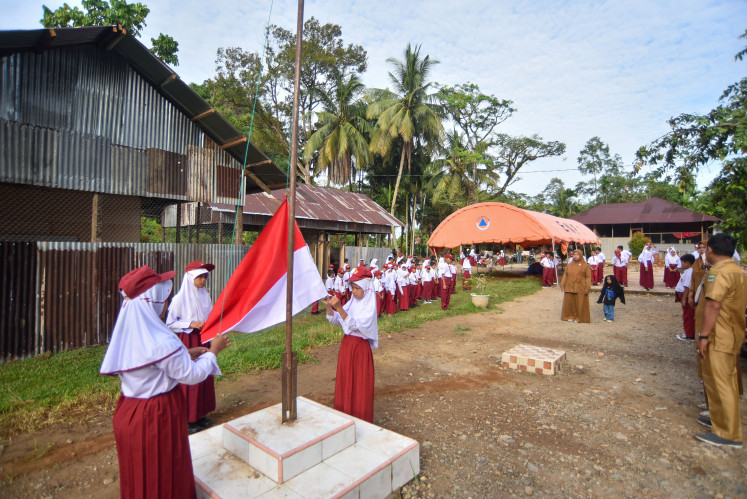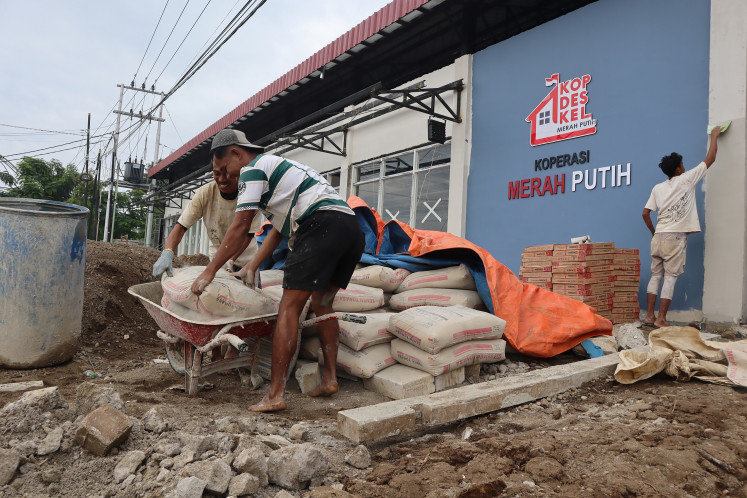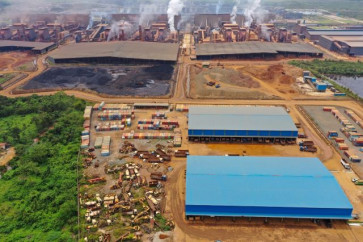Popular Reads
Top Results
Can't find what you're looking for?
View all search resultsPopular Reads
Top Results
Can't find what you're looking for?
View all search resultsDownstreaming not the only answer to Indonesia’s development ambitions
The contentious use of export bans as industrial policy tools demands precise articulation and careful measurement of their goals due to the market distortions they create.
Change text size
Gift Premium Articles
to Anyone
 Metal boom: Smoke rises on Feb. 10 from a nickel smelter belonging to Chinese miner Virtue Dragon Nickel Industry (VDNI) in Morosi, Southeast Sulawesi. The facility was part of the huge rush among domestic and foreign enterprises to mine the critical component used in electric vehicle batteries in Indonesia, the world's largest nickel producer. (AFP/Adek Berry)
Metal boom: Smoke rises on Feb. 10 from a nickel smelter belonging to Chinese miner Virtue Dragon Nickel Industry (VDNI) in Morosi, Southeast Sulawesi. The facility was part of the huge rush among domestic and foreign enterprises to mine the critical component used in electric vehicle batteries in Indonesia, the world's largest nickel producer. (AFP/Adek Berry)
T
he recent vice presidential debate brought into focus Indonesia's economic policies for the next administration, revealing an unexpectedly narrow reliance on downstreaming as the sole solution. However, such a limited perspective should not become the norm, as genuine economic growth demands a more diverse set of policies.
Amid ongoing global uncertainties, Indonesia's economy remains resilient. However, its sustained average economic growth of 5 percent over the past two decades has fallen short of elevating the country to high-income status. To achieve higher growth and escape the middle-income trap, Indonesia must deepen its integration into the global market and not shy away from it.
But, under President Joko “Jokowi” Widodo's leadership, Indonesia walks a tightrope in defending the liberal international economic order, championing free trade agreements while boldly ignoring World Trade Organization rulings on unilateral mineral export bans. The commitment to private-sector involvement in infrastructure development is at odds with state-owned enterprises overshadowing private investment.
Despite advocating state developmentalism, a conservative fiscal policy remains a hurdle for funding capital-intensive industries like nickel downstreaming and electric vehicle battery production.
Persistently advised to diversify its economy beyond commodity exports, Indonesia, under Jokowi, escalated its efforts. The COVID-19 recession triggered a more forceful approach, banning the export of all unprocessed nickel. Jokowi's move aimed to boost domestic processing, extending the strategy beyond nickel to include bauxite, minerals and key resources like crude palm oil and seaweed.
This diversification thrust now anchors Indonesia's ambitious 2025–45 National Long-Term Development Plan. Yet, the contentious use of export bans as industrial policy tools demands precise articulation and careful measurement of their goals due to the market distortions they create.
On paper, Indonesia's nickel export ban has been a powerhouse, drawing in a staggering US$14 billion for domestic nickel smelter capacity. Provinces like North Maluku and Central Sulawesi, vital hubs for nickel downstreaming, saw rapid growth in 2021, fueled by hefty industry investments.


















